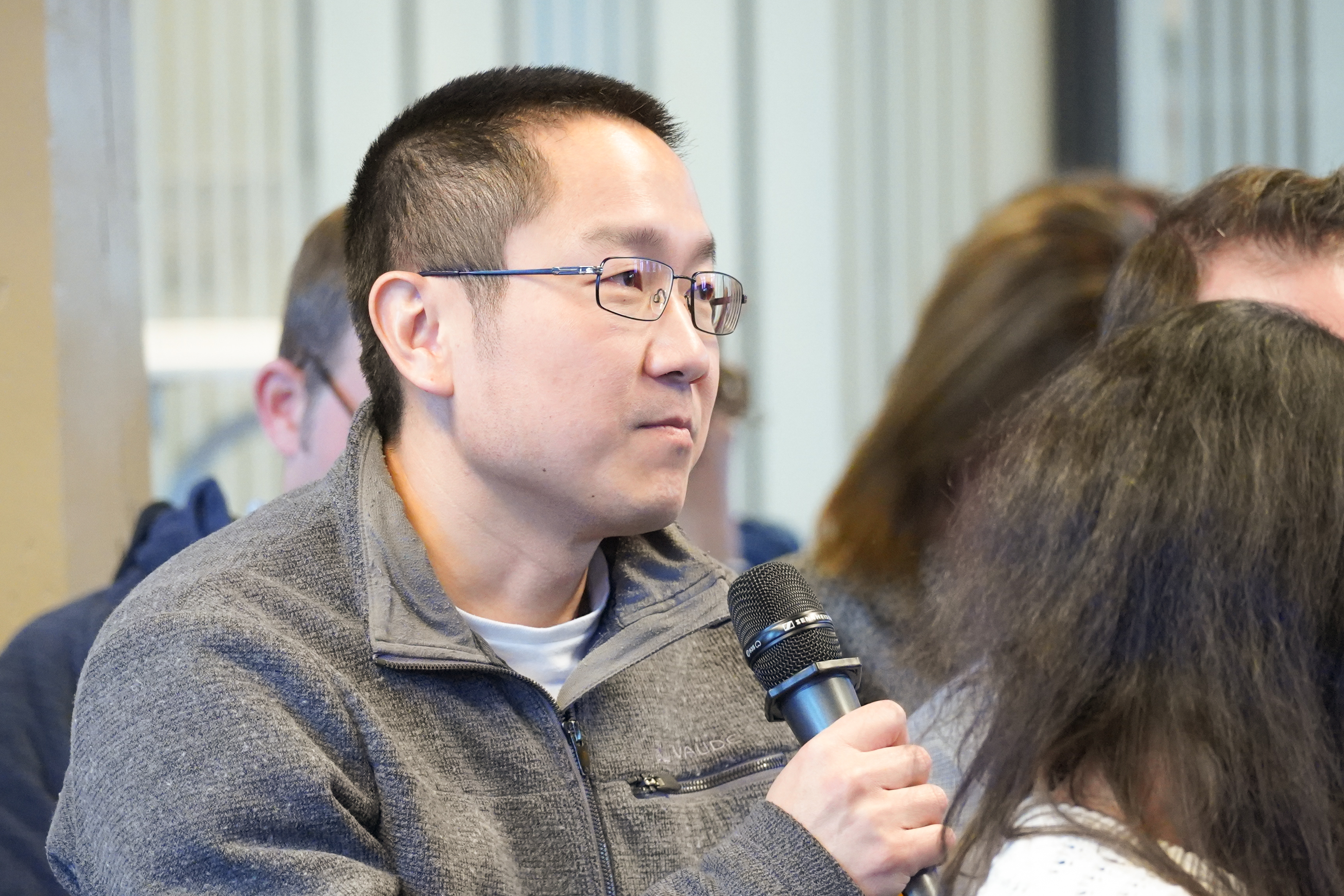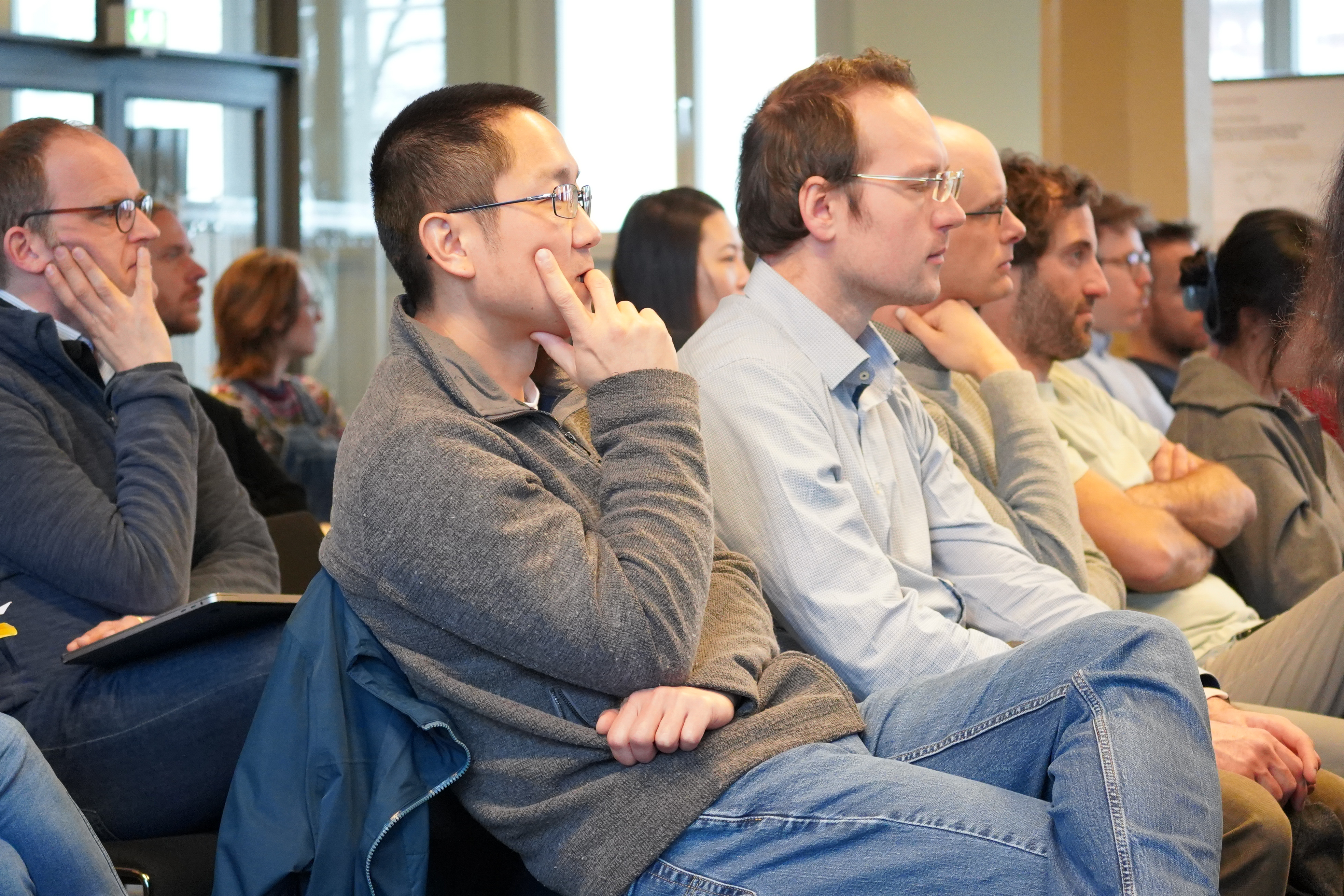Verratti-souto, D, Sagirov, N., Chen, X. (in press). NLP-powered Quantitative Verification of the English Grammar Profile’s Structure Level Assignment. Annual Review of Applied Linguistics.
Lee, M., Rudzewitz, B., Chen, X. (2025). Revealing Individual Differences in EFL Learners’ Reading Engagement from Interaction Logs. In Companion Proceedings 15th International Conference on Learning Analytics & Knowledge (LAK25).
Beukman, M., Rudzewitz, B., Souto, D., Zhu, M., Chen, X. (2025). Developing an AI-powered System that Promotes Interactive Learning and Engagement. In Proceedings of the 6th International Conference on Higher Education Learning Methodologies and Technologies Online.
- Lee, M., Rudzewitz, B., Chen, X. (2024). Bridging classrooms and technology: supporting teaching practice with an ICALL system. In Proceedings of EUROCALL 2024: CALL for Humanity. DOI:10.4995/EuroCALL2024.2024.19038
- Bear, E., Chen, X., Souto D. V., Ribeiro-Flucht, L., Rudzewitz, B., Meurers, D. (2024). Designing a task-based conversational agent for EFL in German schools: Student needs, actions, and perceptions. System,126. DOI:10.1016/j.system.2024.103460
Löber, S., Rudzewitz, B., Chen, X. (2024). Developing a Web-Based Intelligent Language Assessment Platform Powered by Natural Language Processing Technologies. In Proceedings of the NLP4CALL Workshop. DOI:10.3384/ecp211010
Lee, M., Rudzewitz, B., Chen, X. (2024). Developing a pedagogically oriented interactive reading tool with teachers in the loops. In Proceedings of the NLP4CALL Workshop. DOI: 10.3384/ecp211009
Bear, E., Chen, X., & Meurers, D. (2024). Writing style in a second language: Exploring individual differences in linguistic complexity in a large-scale corpus. In Katherine Ackerley & Erik Castello (eds) Continuing Learner Corpus Research: Challenges and Opportunities. Corpora and Language in Use Proceedings 7, Louvain-la-Neuve: Presses universitaires de Louvain, 325-357.
Kim, K., Chen, X., Liu, X. (2024). Accuracy Scoring of Elicited Imitation: A Tutorial of Automating Spoken Data Analysis with Commercial NLP Support. Research Methods in Applied Linguistics, 3 (3) 100127. DOI:10.1016/j.rmal.2024.100127
- Ribeiro-flucht, L., Chen, X., Meurers, D. (2024). Explainable AI in Language Learning: Linking Empirical Evidence and Theoretical Concepts in Proficiency and Readability Modeling of Portuguese. In Proceedings of Workshop on Innovative Use of NLP for Building Educational Applications (BEA) 2024.
- Kim, K., X. Liu, Isbell, D., Chen, X. (2024). A Comparison of Lab and Web-Based Elicited Imitation: Insights from Explicit-Implicit Knowledge and L2 Proficiency. Studies in Second Language Acquisition. DOI: 10.1017/S0272263124000214
- Fütterer, T., Fischer, C., Alekseeva, A. Chen, X., Tate, T., Warschauer, M., & Gerjets, P. (2023). ChatGPT in education: global reactions to AI innovations. Nature Scientific Reports, 13, 15310 . DOI:10.1038/s41598-023-42227-6
- Isbell, D., Kim, K., and Chen, X. (2023). Exploring the Potential of Commercial Speech-to-Text for Automated Scoring of the Korean Elicited Imitation Test. Research Methods in Applied Linguistics, 2(3). DOI: 10.1016/j.rmal.2023.100076
- Bear, E., Bodnar, S., and Chen, X. (2023). Learner and linguistic factors in commercial ASR use for spoken language practice: A focus on form. In Proceedings of 9th Workshop on Speech and Language Technology in Education (SlaTE 2023). DOI: 10.21437/SLaTE.2023-31
- Bear, E. & Chen, X. (2023). Evaluating a conversational agent for second language learning aligned with the school curriculum. In Proceedings of the 24th International Conference of Artificial Intelligence in Education (AIED 2023, Doctoral Consortium).
- Beukman, M. & Chen, X. (2023). Learner Perception of Pedagogical Agents. In Proceedings of 24th International Conference on Artificial Intelligence in Education (AIED 2023, Late-breaking Track).
- Ludewig, U., Alscher, P., Chen, X., and McElvany, N. (2023). What Makes Domain Knowledge Difficult? Word Usage Frequency From SUBTLEX and dlexDB Explains Knowledge Item Difficulty. Behavior Research Methods, 55. DOI:10.3758/s13428-022-01918-0
- Chen, X.B., Meurers, D., and Rebuschat, P. (2022). Towards individually-adaptive input: Effects of complex input on the development of L2 writing complexity. Language Learning & Technology, 26(1): 1-21.
DOI: 10125/73496 - Chen, X.B., Bear, E., Hui, B., Santhi-Ponnusamy, H., Meurers, D. (2022). Education Theories and AI Affordances: Design and Implementation of an Intelligent Computer Assisted Language Learning System. In Proceedings of AIED2022.
- Cui, Y, Zhu, J, Yang, L., Fang, X., Chen, X.B., Wang, Y., & Yang, E. (2022). CTAP for Chinese:A Linguistic Complexity Feature Automatic Calculation Platform. In Proceedings of 13th Language Resources and Evaluation Conference (LREC).
- Weiss, Z., Chen, X.B., and Meurers, D. (2021). Using Broad Linguistic Complexity Modeling for Cross-Lingual Readability Assessment. In proceedings of NLP4CALL Workshop.
- Chen, X.B., Alexopoulou, T., & Tsimpli, I. (2020). Automatic extraction of subordinate clauses and its application in second language acquisition research. Behavior Research Methods. Advanced Online Access. https://doi.org/10.3758/s13428-020-01456-7
- Ruiz, S., Chen, X.B., Rebuschat P., & Meurers D. Meurers, D. (2019). Measuring individual differences in cognitive abilities in the lab and on the web. PLOS ONE, 14 (12). https://doi.org/10.1371/journal.pone.0226217
- Chen, X.B., & Meurers, D. (2019). Linking text readability and learner proficiency using linguistic complexity feature vector distance. Computer Assisted Language Learning, 32 (4), 418-447. https://doi.org/10.1080/09588221.2018.1527358
- Chen, X.B., & Meurers, D. (2018). Word frequency and readability: Predicting the text-level readability with a lexical-level attribute. Journal of Research in Reading, 41(3), 486-510.
- Chen, X.B., & Meurers, D. (2017). Challenging learners in their individual zone of proximal development using pedagogic developmental benchmarks of syntactic complexity. In E. Volodina, I. Pilán, L, Borin, G, Grigonyte, & K, Björkenstam (Eds.), Proceedings of the Joint 6th Workshop on NLP for Computer Assisted Language Learning and 2nd Workshop on NLP for Research on Language Acquisition at NoDaLiDa 2017, Gothenburg, Sweden, 22 May (pp. 8-17). Linköpings: Linköping University Electronic Press.
- Chen, X.B., & Meurers, D. (2016). CTAP: A Web-based tool supporting automatic complexity analysis. In D. Brunato, F. Dell'Orletta, G. Venturi, T. François, & P. Blache (Eds.), Proceedings of the Computational Linguistics for Linguistic Complexity Workshop at the 26th International Conference on Computational Linguistics (COLING 2016), Osaka, Japan, 11 December (pp. 113-119). The International Committee on Computational Linguisitcs.
- Chen, X. B., & Meurers, D. (2016). Characterizing text difficulty with word frequencies. In J. Tetreault, J. Burstein, C. Leacock, & H. Yannakoudakis (Eds.), Proceedings of The 11th Workshop on Innovative Use of NLP for Building Educational Applications (BEA) , San Diego, USA, 16 June (pp. 84-94). Association for Computational Linguistics.
- Chen, X.B. (2013). Tablets for informal language learning: Student usage and attitudes. Language Learning & Technology, 17(1), 20-36.


